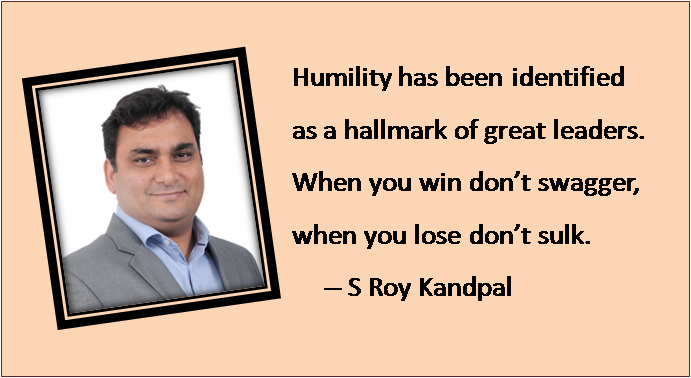A recent article in Caravan magazine noted that at first R K Pachauri denied the sexual harassment allegation and then issued an injunction that barred any individual or media house from publishing any information. His representatives tried to pressurise the media to not write stories. However, they were unable to suppress the issue. The case made global headlines and over the years, his towering reputation came crashing down. There are multiple instances of business failures and character issues in which a complete loss of trust has brought even large conglomerates to a grinding halt.
Despite the PR crisis of its workplace practices, a leading global ecommerce company was recently ranked as the most reputed company in the world by Reputation Institute. However experts said that in the long run customer service impact will wane and rankings dip, unless the company starts to treat its employees and community better. Even a well known brand such as Apple was missing from the top 10 rankings and it scored poorly for its opaque company structure and unwillingness to engage in socially responsible acts.
In a highly competitive environment, when every organisation competes for employees, customers and earning goodwill, there is a tendency to take the short cut. Many companies pay lip service to their responsibility towards stakeholders in an effort to get immediate results. Elaborate PR plans are drawn even before a business decision is undertaken.
From corporate crimes to product failures; heinous acts to genuine errors, there is a need for someone to take on the mantle of building and protecting reputation. PR departments are sometimes bullied by marketing requirements, growth pressures and even CEOs, to deliver on a publicity plan that overlooks the long term impact of their actions. The priorities of different agendas supercede the impact on reputation. In fact in a quick fix environment, sometimes leaders are more focused on winning at any cost.
The Reputation Institute has identified Citizenship, Governance and Workplace Culture as three core attributes that heavily influence reputation. The importance of a good reputation is critical, as it impacts customers – who decide where to buy, talented employees – who decide where to work and investors- who decide where to invest. Traditional PR wisdom says that Public Relations is 80% behavior and 20% communications. That we must first work towards earning a reputation. Organisations and leaders need to get more vigilant about their reputation and control it first in their actions and then in their communications.
- Abraham Lincoln said “Character is like a tree and reputation its shadow. The tree is the real thing”. So who should take the responsibility of building, nurturing and guarding the real thing?
The leader – in all aspects should maintain personal integrity and practice ethical business. Recently in an interview when Sudha Murthy was asked, how do you take decisions to allocate funds? She stated the philosophy of `Sarvajana Hitaya, Sarvajana Sukhaya’ (for the welfare of all, for the happiness of all) as a guiding principle for all decisions. According to research more than 50% of an organisation’s reputation is driven by its leader.
The leader is also guilty of puff PR. When in doubt, under communicate and over execute. There is no point in building up the promise of a new product, service, function, individual or department. The accomplishments will be there for all to acknowledge as and when it reaches a certain threshold of impact. You can’t build a reputation on what you are going to do. Let your actions speak louder than your PR department.
- Chief Reputation Officer (CRO) – companies should recruit CRO’s at the leadership level, who are able to make executive decisions that shape the actions of the organisation. This has to be outside the PR (publicity) department. Acknowledge the difference between marketing communication, public relations and reputation management. The CRO and his team should have visibility across all functions and the liberty to bring reputation issues to the attention of the CEO or even the Board. Arthur W Page Society’s view squarely puts the responsibility of defining and activating the corporate character with this role. In a dynamic and changing business environment a CRO has to take on the role of an integrator, a systems designer, a master of data analytics, a publisher and a developer, a student of behavioral science and a curator of corporate character.
- The employees – make every department, every employee conscious of responsible behavior. Conduct camps to understand, list and practice ethical behavior within the organisation. Practice full disclosure, create redressal cells, set up an ombudsman, genuinely listen to feedback from employees and take action.
It is also important to treat media as an ally. Be accessible. The first response of a company in any issue is of self-preservation. Decisions to share facts, be available, be honest are all compromised in an effort to avoid bad publicity. Avoiding the issue doesn’t make it go away but being sincere and doing your best to rectify the situation helps you earn trust. In times of crisis, lack of clarity and focus on decisions kill organizations faster than the external world can. Toyota’s senior executives were sincere in their apology and effort to address the impact of their product recall.
Don’t be afraid to say ‘I don’t know’. Many executives try to appear in-control, making the situation worse. There are some well-known Indian leaders who have the humility to admit that they don’t know certain things and the curiosity to find out. Humility has been identified as a hallmark of great leaders. When you win don’t swagger, when you lose don’t sulk.
Professor Charles Fombrun, Stern School of Business, New York University believes that “Reputation develops from a company’s uniqueness and from identity-shaping practices, maintained over time that makes the company credible, reliable, responsible and trustworthy.”



Be the first to comment on "Who guards your reputation?"